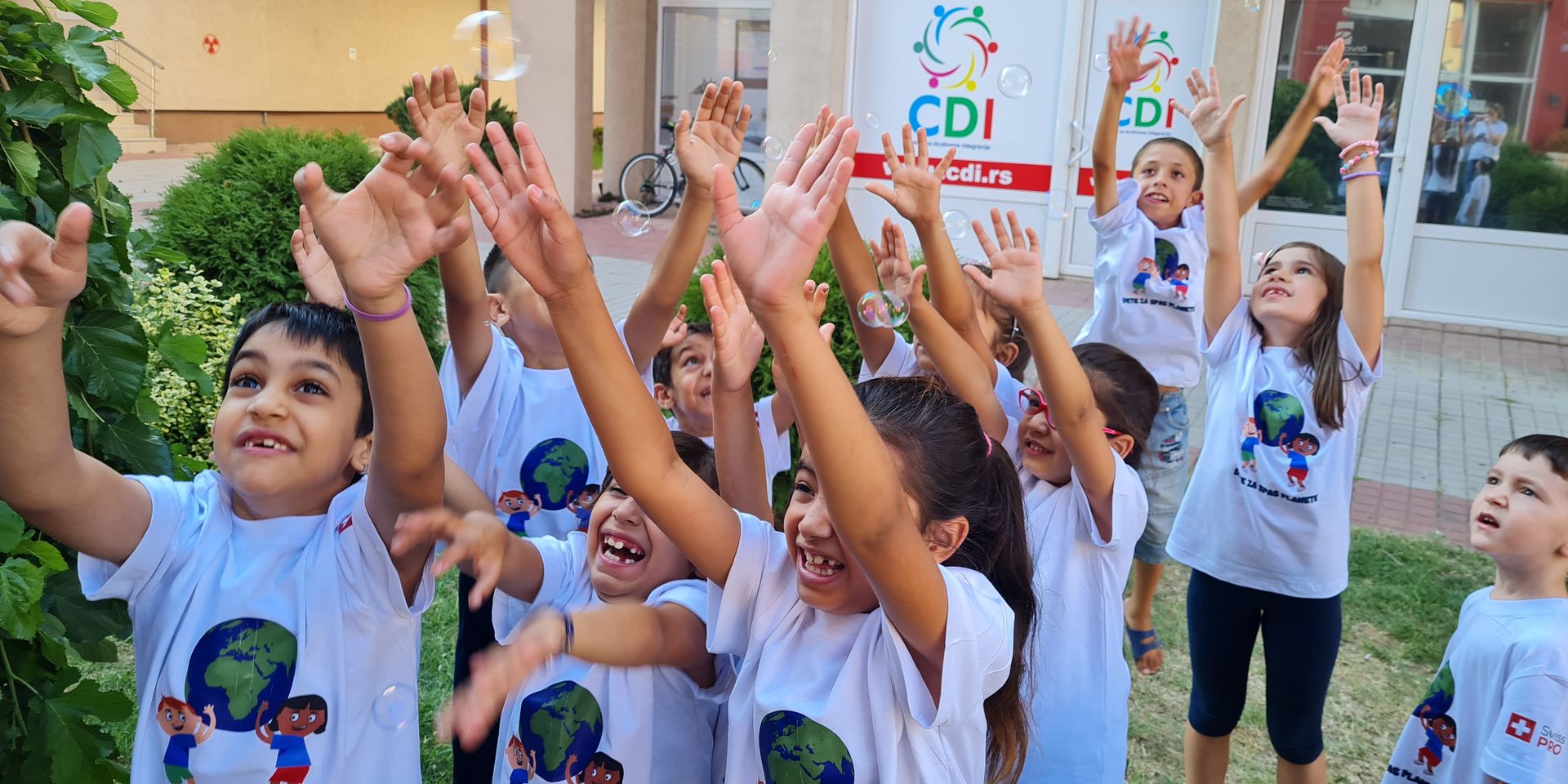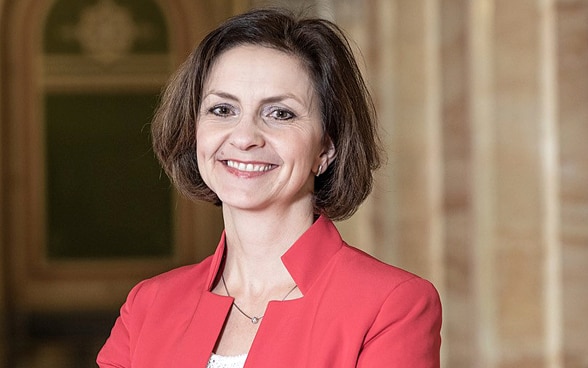"It is not so long ago that the Balkan countries were at war"
Switzerland has a long-standing commitment to stability in the Western Balkans and, through its international cooperation work, supports a wide range of projects covering vocational education and training, the promotion of dialogue, dealing with the past and waste management. FDFA State Secretary Livia Leu is travelling to Kosovo and Serbia at the end of June 2022 at a time when the impact of the war in Ukraine on the Western Balkans is still unclear.

Roma children participating in an educational workshop within the small project "Support to the social cohesion of Roma children" in Serbia. © FDFA
State Secretary Livia Leu is travelling to Serbia and Kosovo at the end of this month. Does this trip reflect Switzerland's current political priorities?
The FDFA State Secretary's trip demonstrates the political importance of the Western Balkans and, in particular, Serbia and Kosovo, to Switzerland. The purpose of the trip is to discuss strategic challenges and review bilateral relations.

Is this trip justified given the already fragile situation in Ukraine?
It's not that long ago that the Balkan countries were at war, forcing large numbers of people to flee their homeland – similar to what is now happening in Ukraine. Fortunately, the situation in the Balkans has improved significantly since the 1990s. However, the war in Ukraine is again highlighting the fragile stability in the region, with energy price hikes and the climbing cost of household staples elevating the risk of social tensions. It is therefore essential for Switzerland to continue to work in the Western Balkans while monitoring developments. Dealings with the authorities and organisations in Serbia and Kosovo provide an opportunity to understand the situation on the ground better.
How specifically is Switzerland involved in the region?
Switzerland has been supporting a wide range of activities in the Western Balkans for over 30 years. It has primarily contributed to international cooperation programmes focusing on job creation, good governance at local level, minority rights, infrastructure, climate change and assistance in dealing with the past. Switzerland has also been involved in EUFOR military missions in Bosnia and Herzegovina and KFOR missions in Kosovo, which have made an important contribution to stability in the region. Switzerland also cooperates closely with the Balkan countries on migration, justice and policing, maintains close diplomatic relations and supports the strenghtening of ties to the EU.
Switzerland provides up to CHF 100 million in funding to the region annually. How is the money actually used?
Switzerland supports, for example, projects to increase vocational training opportunities in Serbia, which directly benefit young people and disadvantaged groups and help to bring down the high levels of unemployment. Switzerland's support has already improved local services for 600,000 people in Kosovo. Another example is Albania, where Switzerland is working to improve urban infrastructure in relation to drinking water supplies, sanitation and municipal waste. For all our projects in the region, we work with local authorities and organisations on the ground.
Based on recent evidence, it seems unlikely that relations between Serbia and Kosovo will improve in the foreseeable future. Can Switzerland do anything to help, and if so, what specifically?
The stalled normalisation of relations between Serbia and Kosovo is a major driver of instability in both countries. Switzerland supports EU-led dialogue between the two countries under a cooperation programme, providing a safe space for both parties to hold talks. This is critical to enabling both parties to arrive at a new level of understanding for each other's concerns.

